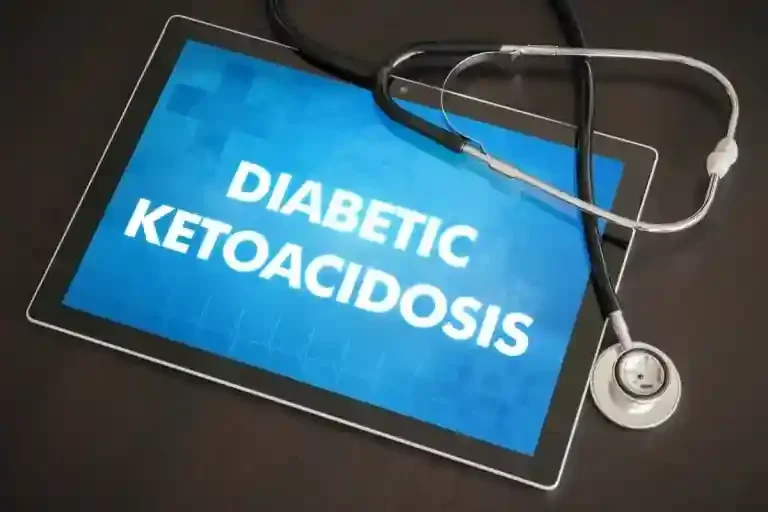Making the right food choices is crucial for people with diabetes. Diabetes surgery is often considered because diabetes can interfere with a person’s ability to process blood sugar (glucose). Eating unhealthy food while being diabetic can have a number of effects on the body, including high blood sugar levels and weight gain. Different foods provide various amounts of macronutrients that give us energy. Having a healthy mix of these foods can help manage symptoms of diabetes as well as blood sugar levels.
Here are a Few Foods to Avoid with Diabetes
1. Refined Carbohydrates
Carbohydrates can be found in three forms in food: starch, sugar, and fiber. Starch and sugar are two of the biggest problems for diabetic patients as these components in foods are broken down into glucose, which raises blood glucose levels.
Starchy foods to avoid: Diabetic patients may benefit from limiting the consumption of white rice and white flour as well as food products made with white flour, including white bread, white pasta, cereals, biscuits, and baked foods.
Sugary foods to avoid: Sugary foods have little to no nutritional value but cause a spike in blood glucose level and also contributes to weight gain while increasing the likelihood of heart stroke. Foods high in sugar content include baked foods such as cakes and cookies, candies and chocolates, sweets, syrups, and most carbonated beverages.
Eat instead:
- Whole grains, such as brown rice, quinoa and oatmeal
- Whole wheat roti
- Desserts with natural sweeteners
2. Processed Meats
Processed meats such as ham, bacon, and salami contain many harmful chemicals that are not eaten in the fresh state. They are linked to a high risk of cancer and heart disease. Diabetic patients should avoid or limit the intake of processed meats, fatty cuts of meats, and deep-fried fish.
Eat instead: Skinless chicken, whole eggs, and fish can be eaten by those who have a non-vegetarian diet. Vegetarian options for diabetic patients may include beans, lentils, nuts, and soy products.
3. Processed Sugars
Most packaged confectionery, such as cakes, pastries, and cookies, are high in refined sugar, refined wheat, and unhealthy fats. They are also high in preservatives and artificial sweeteners, which cause a spike in blood sugar and insulin levels. Avoiding such foods can be beneficial for diabetic patients.
Eat instead: Such snacks and confectionery can be hard to resist, but replacing them with vegetables, nuts, and fresh fruits can be better and healthier choices for diabetic patients.
4. Deep Fried Foods
Foods deep fried in oils are loaded with unhealthy saturated fats, which are very high in fat and calories, thus increasing the risk of developing heart diseases and obesity. Most deep-fried foods are fast foods which are high in sodium content and can contribute to an increase in blood pressure levels.
Eat instead: Fried vegetables and baked sweet potatoes can be consumed by diabetic patients.
5. Full-Fat Dairy Products
Full-fat dairy mainly contains saturated fats, which increases the risk of heart disease as well as becoming obese. Diabetic patients may benefit from avoiding full-fat dairy products, including cheeses and butter.
Ear instead: Low-fat or non-fat dairy product alternatives may be available, which can be consumed by diabetic patients.
6. Processed or Canned Vegetables
Vegetables have a lot of fiber; thus, these are the healthiest form of carbs. However, not all forms of vegetables are good for diabetic patients. Canned vegetables, pickles with added salt (sodium), and vegetables cooked in butter or cheese are foods to be avoided for diabetic patients.
Eat instead: Fresh vegetables can be eaten raw, grilled, or roasted. Green leafy vegetables and unsalted, low-sodium vegetables can be beneficial for diabetic patients.
7. Dry Fruits
Dry fruits have great nutritional value and are loaded with fibers. Unfortunately, dry fruits are loaded with sugar, which may not be as beneficial for diabetic patients.
Eat instead: Fresh fruits such as apples and bananas can be beneficial for diabetic patients.
8. Beverages
Most beverages and juices contain high carbohydrates and added sugars. Even alcoholic drinks can contain sugar and carbs. Such drinks and fluids should be avoided by diabetic patients. Diabetic patients should also avoid flavored or sweetened teas, coffees, and chocolate drinks, coffee with cream, and regular sodas.
Drink instead: Apart from plain water, unsweetened tea, coffee, and zero-calorie drinks can be consumed by diabetic patients. A few pieces of fruit, such as cucumbers and apples, can be added to give some flavor to the water.
9. Breakfast Cereals
Most breakfast cereals contain high amounts of processed sugar, which can prove to be harmful for patients with diabetes as it will spike a patient’s blood sugar and insulin levels. Excessive consumption of such sugary cereals can even lead to obesity while also increasing the risk of heart disease and cancer.
Eat instead: Sweetened breakfast cereals should be replaced with healthier alternatives such as oatmeal, homemade granola, idlis, poha, whole wheat pancakes, etc.
10. Unhealthy Saturated or Trans Fats
While unsaturated fats may be beneficial in reducing the risk of heart diseases and lower the levels of trans fats, cholesterol, and saturated fats have no health benefits. They also increase bad cholesterol levels in the body and are most commonly found in fast foods and snacks such as fried chips, pizzas, cakes, pies, cookies, doughnuts, etc.
Eat instead: Natural sources of fats should be consumed instead of saturated fats such as vegetable fats, including nuts and seeds. Foods containing omega-3 fatty acids found in fish are also beneficial for diabetic patients.
The key to eating healthy is to choose mindfully. People with diabetes should be mindful of the glycemic index (GI) of the foods they consume. Even seemingly healthy foods can have high sugar content, such as watermelons. Additionally, it is important to focus on healthy macronutrients and avoid foods that are high in sugar, sodium, and fat.
To make more informed choices about food and diet, people with diabetes may consult board-certified dietitians and diabetologists at Wockhardt Hospitals. Our world-class medical professionals will help them understand what to eat when to eat, and how much to eat.
Managing weight and reducing the potential risk factors is essential in holistically managing diabetes in patients.
FAQs on Foods to Avoid in Diabetes
Q. What foods can people with diabetes eat freely?
Foods with a low glycemic index (GI), such as non-starchy vegetables like leafy greens, broccoli, and cauliflower, are safe for people with diabetes to eat. Lean proteins, such as fish, poultry, and tofu, and healthy fats from nuts are also beneficial. Regular monitoring and portion management are still crucial.
Q. How can I lower my blood sugar quickly?
- Take Insulin: The fastest and most recommended way to treat diabetes is to take rapid-acting insulin. If you have type 1 diabetes, you might be able to receive a corrected dosage via your insulin pump.
- Hydrate: Sip water to eliminate extra sugar.
- Exercise Out: Exercise facilitates glucose usage by cells as an energy source.
- High-Fibre Foods: To reduce the absorption of sugar, eat whole grains and vegetables that are high in fibre.
- Watch Your Carbohydrate Consumption: To avoid increases, cut back on your consumption.
- Medicines: Follow the doctor’s instructions and take insulin or other recommended drugs.
Q. How to reverse diabetes?
- Dietary modifications: Focus on nutritious meals that are low in processed carbohydrates and sugar.
- Exercise regularly: Gain better insulin sensitivity and weight control by exercising.
- Medication Compliance: For efficient treatment, take prescription drugs as directed and visit your doctor regularly.












